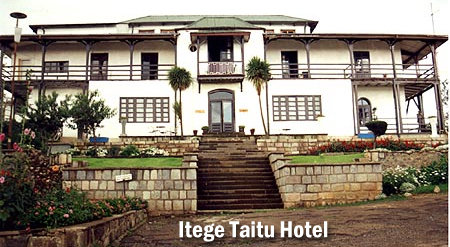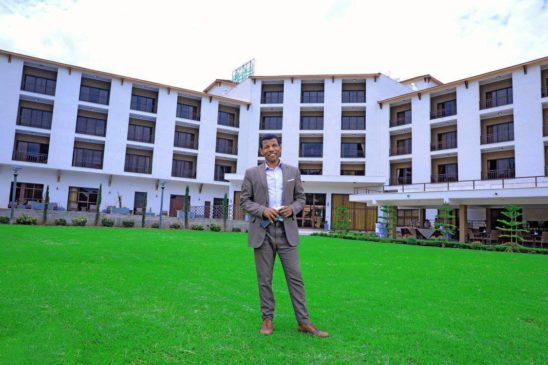In search of hospitality
 Addis Ababa prides itself on being one of the major diplomatic centers in the world. With a population of some 3.5 million, the metropolis hosts thousands of hotels, restaurants and cafeterias ranging from low-end establishments to the ritzy ones.
Addis Ababa prides itself on being one of the major diplomatic centers in the world. With a population of some 3.5 million, the metropolis hosts thousands of hotels, restaurants and cafeterias ranging from low-end establishments to the ritzy ones.
True to form, Addis Ababa is home to a handful of franchise hotels including Starwood Hotels and Resorts’ Sheraton, Hilton Hotel and Resorts’ Hilton and Carlson Rezidor Hotel Group’s Radisson Blu. Intercontinental Hotels Group’s Crowne Plaza, Marriott International’s Executive Apartments and Courtyard and Accor Hotels’ Accor and Ibis are all scheduled to open their doors for service in the foreseeable future. Being a city that hosts a considerable number of tourists and business travelers, Addis Ababa is expected to offer a lot when it comes to the hospitality industry, especially in the quality of services, writes Bruh Yihunbelay.
The advent of the 20th century heralded the emergence of the hospitality industry in Ethiopia with the opening of the first hotel. Itege Taitu Hotel, located in a hilly area in the heart of Piazza, is the first hotel to open its doors for service during the era of Emperor Menelik II in 1907. One would assume the hotel would have a maître d’hotel attired in a black tuxedo holding a white towel and tables covered with white linen cloths. Could be. But there is no historical evidence that supports this assumption.
But the story goes like this. After the construction of the Entoto Mariam Church, Ethiopian nobility from across the nation were invited for the inaugural ceremony, and back then there were no accommodations to host guests. So locals residing around the foot hills of the Entoto were instructed by Empress Taitu to provide accommodations for the guests. Seeing that there would be a need for decent accommodation for guests in the future the Emperor and his wife decided to open a hotel in Addis Ababa. And on November 4, 1907 the first hotel in Ethiopia was inaugurated in the presence of diplomats, dignitaries and invited guests. The hotel was built at the whim of Empress Taitu to give Ethiopian nobility and aristocracy a taste of some modern munificent lifestyle. It was the first establishment where guests from that segment of the society wined and dined. Employing dMonsieur Frederich Hill as the first manager of the hotel, who was later replaced by an Ethiopian, Zekeka Agardew, the hotel had Taitu as its head chef (who according to historical records was renowned for her culinary skill) waiters and personnel that any hotel has. So what were the wages of the employees? (Apart from the Empress that is.) Well they were mostly paid in kind.
After the maiden hotel started business, the hospitality industry slowly started to take shape though it took decades to have big hotels all over Addis Ababa. The likes of Addis Ababa Hilton, Ghion Hotel (formerly known as Ghion Imperial Hotel) Ethiopia Hotel, Harambee Hotel, Wabe Shebelle Hotel and Hotel D’Afrique are all reminiscent of the hospitality industry during the time of Emperor Haileselassie I. However, after the military regime came to power most of the hotels that were owned by the royal family and the aristocracy were nationalized and there were no privately owned hotels up until the country started to adopt the policy of mixed-economy. It was then that Imperial Hotel and Extreme Hotel opened for business and took the hospitality industry to a whole new level.
Read more at: The Reporter



